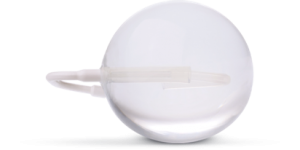Are you familiar with the term “ethical omnivore“? While lifestyles such as vegetarianism and veganism have existed for some time, an ethical meat eater might seem to be somewhat of a strange concept at first glance.
However, there are some extremely unique attributes associated with this attitude, and it also offers a handful of potential health benefits. Let’s therefore first take a quick look at how ethics can sometimes play a role in the foods that we choose to eat before moving on to discuss whether or not this approach is more practical than other dietary preferences.
Ethical Omnivorism at a Glance
Sometimes known as “compassionate carnivorism”, an ethical carnivore feels that it is natural to consume products sourced from animals. Common examples include meat, milk and milk byproducts. However, it is important to note one crucial caveat. A compassionate omnivore is always concerned with how animal-based foods are produced. These individuals will therefore take into account factors such as poaching, free-range farms and humane treatment.
Another essential facet of this mentality is associated with the environmental impact that the products themselves may have. Organic production and sustainability are therefore other core tenets alongside principles such as:
- Adopting a low carbon footprint.
- Reducing food waste.
- A focus upon the role of plant-based proteins.
These issues are not often addressed by those who simply choose to eat whatever foods are the most convenient at the time (such as fast foods or processed substances).

Omnivore vs Vegan: The Main Differences
The current vegan vs omnivore debate will often center around the consumption of red meat. As omnivores believe that red meat represents a core tenet of a healthy lifestyle, proponents of each hold extremely polarized viewpoints.
For instance, vegans will cite the negative environmental impacts of red meat consumption, observing that omnivores are not as concerned about sustainability as they claim to be. Furthermore, vegans abstain from consuming any animal-derived foods. Omnivores instead eat these products in moderation as long as they have been sourced from ethical methods.
Are Vegans Healthier than Omnivores?
This is yet another contentious question that has gained a fair amount of exposure in recent times. Studies have shown that vegan diets tend to be low in cholesterol and relatively high in fiber. These are important benefits in terms of digestion, weight loss and cardiovascular health. However, vegans will often find it difficult to obtain other nutrients such as protein, calcium, and salt. Omnivores will often consume all the necessary nutrients and yet, this may come at a cost in terms of saturated fat and cholesterol when taken in excess.
The main takeaway point here is that the term “healthier” will generally apply to individual dietary choices. For example, a vegan who does not obtain the recommended daily supply of iron could be at a higher risk of developing anemia, while an omnivore who fails to limit his or her fat intake may develop hypertension (high blood pressure). Thus, each side has valid points in regard to how poorly managed diets can have negative health consequences.

An Ongoing Discussion
Ethical meat eaters make logical points in terms of the need to consume protein as well as the ability to limit their overall environmental impact. Vegans are likewise correct in stating that it is possible to adopt a balanced diet without the need for animal-based products. Ultimately, each lifestyle choice offers its own set of benefits as well as some potential drawbacks. This is why decisions are often based upon personal beliefs as well as nutritional requirements.
The Core Traits of a Healthy Diet
Whether modifying a diet in order to lose weight or simply to feel better, there are plenty of additional strategies to explore. Daily physical activity, obtaining plenty of sleep and abstaining from alcohol are three powerful strategies. Of course, it is also possible to reap the rewards associated with the Spatz3 adjustable gastric balloon. Not only will this device help to reduce food cravings, but it can offer even more beneficial results when used alongside a healthy and balanced diet.
While the notion of becoming an ethical omnivore may not appeal to all consumers, a growing number of individuals feel that this attitude offers a unique alternative to the rather strict rules associated with traditional veganism.


